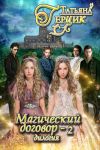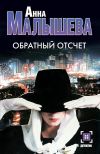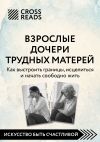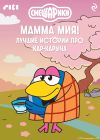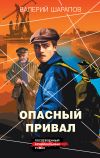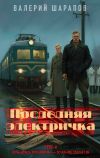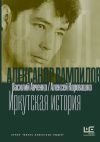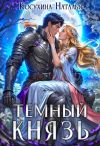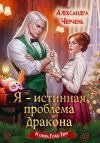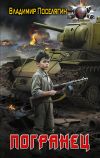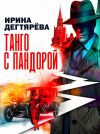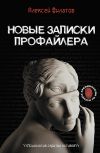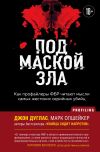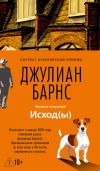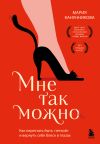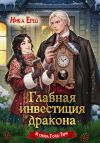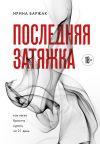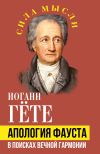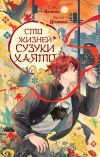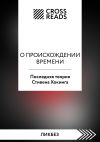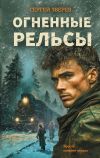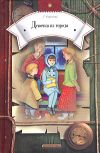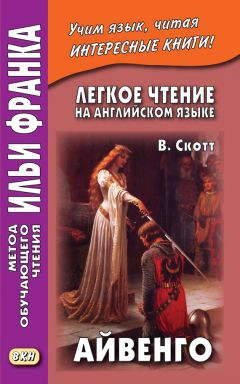
Автор книги: Вальтер Скотт
Жанр: Иностранные языки, Наука и Образование
Возрастные ограничения: +12
сообщить о неприемлемом содержимом
Текущая страница: 3 (всего у книги 17 страниц) [доступный отрывок для чтения: 4 страниц]
enjoy [ɪn’dʒɔɪ], archery [‘ɑ:tʃǝrɪ], competition [,kɔmpɪ’tɪʃ(ǝ)n], dare [deǝ]
“I always enjoy a good fight,” replied the archer.
“We shall see how well you do yourself, when we get to the archery competition at the end of the tournament,” answered the Prince sourly and turned back to Cedric. “Meanwhile, you Saxons back there, stand up! The Jew has to sit among you! Let me see who dares to stop him!”
Cedric was certainly not about (Седрик уж точно не собирался; be about – касаться, иметь отношение; собираться /сделать что-либо/, предполагать) to let Prince John tell him what to do (позволить принцу Джону говорить, что ему делать), and there would have been serious trouble (и произошли бы серьезные неприятности; serious – серьезный, глубокомысленный; имеющий тяжелые последствия; trouble – беспокойство, волнение, тревога; злоключение, неприятность) if Wamba hadn’t jumped in between his master and Isaac (если бы Вамба не вскочил, /и не встал/ между своим господином и Исааком).
“I will (я /осмелюсь/)!” he shouted (закричал он) and swung his wooden sword over his head (и взмахнул своим деревянным мечом над его головой; to swing – качать/ся/, колебать/ся/; вертеть, поворачивать).
certainly [‘sǝ:tnlɪ], serious [‘sɪ(ǝ)rɪǝs], trouble [‘trʌb(ǝ)l], wooden [wʋdn]
Cedric was certainly not about to let Prince John tell him what to do, and there would have been serious trouble if Wamba hadn’t jumped in between his master and Isaac.
“I will!” he shouted and swung his wooden sword over his head.
Pulling back from the jester’s sword (отступая от меча шута; to pull back – отдергивать, оттаскивать; отступать), Isaac stepped back (Исаак сделал шаг назад; to step – ступать, шагать, делать шаг; to step back – отступить) and fell down the steps of the gallery (и упал со ступеней галереи; step – шаг; ступень, ступенька). The crowd, including the Prince and his Norman friends (толпа, включая принца и его друзей-норманнов), laughed out loud at this sight (рассмеялась громко при виде этого: «от этого зрелища»; sight – зрение; вид; зрелище).
“Give me a prize, Prince (дайте мне приз, принц),” said Wamba and came up to Prince John (сказал Вамба и подошел к принцу Джону).
“Who and what are you (кто ты и чем ты занимаешься; what – в вопросе о людях – об их профессии, характере и т. д.)?” asked the Prince, still laughing (спросил принц, все еще смеясь).
“I am a jester (я шут),” answered Wamba. “I am Wamba, the son of Witless (я Вамба, сын Безмозглого).”
laugh [lɑ:f], prize [praɪz], witless [‘wɪtlɪs]
Pulling back from the jester’s sword, Isaac stepped back and fell down the steps of the gallery. The crowd, including the Prince and his Norman friends, laughed out loud at this sight.
“Give me a prize, Prince,” said Wamba and came up to Prince John.
“Who and what are you?” asked the Prince, still laughing.
“I am a jester,” answered Wamba. “I am Wamba, the son of Witless.”
“Normans, make room for the Jew (норманны, потеснитесь и дайте место этому еврею) down in the front of the gallery (внизу, в первых рядах галереи),” Prince John shouted over to the Norman noblemen (принц Джон прокричал знатным норманнам; noble – благородный, возвышенный; знатный, титулованный; nobleman – дворянин; аристократ). “Come here, Isaac, and lend me a handful of money (идите сюда, Исаак, и одолжите мне пригоршню монет; handful – пригоршня; горсть; money – деньги).”
Afraid, Isaac went up to the Prince (испуганный, Исаак подошел к принцу) and gave him the money from a little bag on his belt (и отдал ему деньги из небольшого кошелька, /висевшего/ на поясе; bag – мешок; сумка; чемодан, пакет; кошелек).
shout [ʃaʋt], lend [lend], handful [‘hændfʋl]
“Normans, make room for the Jew down in the front of the gallery,” Prince John shouted over to the Norman noblemen. “Come here, Isaac, and lend me a handful of money.”
Afraid, Isaac went up to the Prince and gave him the money from a little bag on his belt.
Prince John threw the money to Wamba (принц Джон бросил деньги Вамбе), and turned to the Prior (и обернулся к приору).
“We are forgetting the Queen of Love and Beauty (мы забываем о королеве любви и красоты)! I hope it will be that beautiful Rebecca (я надеюсь, что ею станет эта прекрасная Ревекка). That would really make the Saxons angry (это действительно разозлит саксов; angry – рассерженный, сердитый, недовольный, раздраженный, разгневанный; to make angry – раздражать, досаждать, сердить)!”
“A Jewess (еврейка)!” Prior Aymer turned his eyes up in horror (приор Эймер поднял глаза к небу: «вверх» в ужасе). “If Bois-Guilbert wins the tournament (если Буа-Гильбер выиграет этот турнир), I think I know (мне кажется, я знаю) who he will choose to be the Queen of Love and Beauty (кого он выберет королевой любви и красоты)!”
threw [θru:], angry [‘æŋɡrɪ], horror [‘hɔrǝ]
Prince John threw the money to Wamba, and turned to the Prior.
“We are forgetting the Queen of Love and Beauty! I hope it will be that beautiful Rebecca. That would really make the Saxons angry!”
“A Jewess!” Prior Aymer turned his eyes up in horror. “If Bois-Guilbert wins the tournament, I think I know who he will choose to be the Queen of Love and Beauty!”
Prince John gave the signal for the tournament to begin (принц Джон подал сигнал к началу турнира: «к тому, чтобы турнир начался»), and a herald came forward (и герольд вышел вперед; to come forward – выходить вперед, выступать, выдвигаться) to read out the tournament rules (чтобы зачитать правила турнира; to read out – прочитать вслух; rule – правило, норма).
Five Norman knights had already been chosen by the Prince (пять рыцарей-норманнов уже /заранее/ были выбраны принцем) to be the ‘challengers’ for the day (быть «зачинщиками» турнира /в тот день/; challenge – вызов /на поединок, дуэль и т. п./; to challenge – бросать вызов, вызывать; challenger – кандидат, претендент, соискатель; тот, кто бросает вызов). These five knights stood next to their tents at the end of the lists (эти пятеро рыцарей стояли рядом со своими шатрами в конце ристалища; tent – палатка, шатер) and held up their shields for everyone to see (и держали высоко свои щиты, чтобы каждый мог их видеть).
signal [‘sɪɡn(ǝ)l], herald [‘herǝld], rule [ru:l], challenger [‘tʃælɪndʒǝ], shield [ʃi:ld]
Prince John gave the signal for the tournament to begin, and a herald came forward to read out the tournament rules.
Five Norman knights had already been chosen by the Prince to be the ‘challengers’ for the day. These five knights stood next to their tents at the end of the lists and held up their shields for everyone to see.
According to the rules (согласно правилам), these five challengers would have to fight (эти пятеро зачинщиков должны были сражаться) against any other knight (против любого другого рыцаря) who chose to fight against them (который захотел бы сражаться против них; to choose – выбирать; разг. хотеть, желать). A knight could choose (любой рыцарь мог сделать выбор /и/) to fight against one of the challengers (драться с одним из зачинщиков /турнира/) by touching that challenger’s shield with his lance (коснувшись: «путем касания» щита того зачинщика своим копьем; to touch – /при/касаться, трогать, притрагиваться).
according [ǝ’kɔ:dɪŋ], touching [‘tʌtʃɪŋ], covered [‘kʌvǝd], rider [‘raɪdǝ]
According to the rules, these five challengers would have to fight against any other knight who chose to fight against them. A knight could choose to fight against one of the challengers by touching that challenger’s shield with his lance.
If he touched the shield with the back end of his lance (если он касался щита тупым концом своего копья; back – задний), the two knights would fight with their lances covered (то двое рыцарей состязались закрытыми копьями /т. е. копьями, не с железными, а деревянными наконечниками/; to cover – накрывать, закрывать, покрывать; covered – имеющий крышу; покрытый крышей; укрытый, прикрытый, защищенный; закрытый, покрытый), so that there was no danger to the horses or riders (так, чтобы не было опасности для коней или всадников).
If the knight touched the shield (/однако/, если же рыцарь касался щита) with the point of his lance, however (острием своего копья; point – точка, пятнышко, крапинка; острие; наконечник; however – однако, тем не менее), the knights would fight against each other (рыцари сражались друг с другом) with sharp weapons (острым оружием; sharp – острый; остроконечный, отточенный), like in a real battle (как в настоящей схватке; battle – битва, сражение, бой; поединок, схватка /между двумя участниками/). At the end of the fighting (в конце /всех/ сражений), Prince John would announce the winner of the day’s tournament (принц Джон объявлял победителя турнира того дня). The winner would receive a war-horse as a prize (победитель получал боевого коня в качестве приза) and have the honour of naming the Queen of Love and Beauty (и имел честь назвать королеву любви и красоты; to name – называть, давать имя; называть кого-либо кем-либо).
sharp [ʃɑ:p], weapon [‘wepǝn], real [rɪǝl], winner [‘wɪnǝ], receive [rɪ’si:v], war-horse [‘wɔ:hɔ:s]
If he touched the shield with the back end of his lance, the two knights would fight with their lances covered, so that there was no danger to the horses or riders.
If the knight touched the shield with the point of his lance, however, the knights would fight against each other with sharp weapons, like in a real battle. At the end of the fighting, Prince John would announce the winner of the day’s tournament. The winner would receive a war-horse as a prize and have the honour of naming the Queen of Love and Beauty.
On the second day of the tournament (на второй день турнира), all the knights would fight each other in two groups (все рыцари сражались другом с другом в двух группах = разделившись на два отряда) until Prince John announced the end of the tournament (до тех пор, пока принц Джон не объявит об окончании турнира; end – конец, край; конец, окончание). The Queen of Love and Beauty would then give a prize to the knight (королева любви и красоты вручала затем приз тому рыцарю) who had fought best on the second day (который сражался лучше всех во второй день). Finally, at the very end (и наконец, в самом конце), there would be an archery competition (устраивалось состязание лучников).
tournament [‘tʋǝnǝmǝnt; ’tɔ:], group [ɡru:p], finally [‘faɪnǝlɪ]
On the second day of the tournament, all the knights would fight each other in two groups until Prince John announced the end of the tournament. The Queen of Love and Beauty would then give a prize to the knight who had fought best on the second day. Finally, at the very end, there would be an archery competition.
The herald ended his announcement by shouting (герольд завершил свое объявление, прокричав; announcement – объявление, сообщение; to announce – объявлять), “Love of ladies (любовь дам) – death of knights (смерть рыцарей) – honour and glory to the brave (честь и слава смелым; brave – мужественный, отважный, смелый, храбрый)!” The audience cheered (зрители приветствовали /его/ громкими возгласами) and threw gold and silver coins down to him (и бросали золотые и серебряные монеты /вниз/ ему).
announcement [ǝ’naʋnsmǝnt], death [deθ], glory [glɔ:rɪ], audience [‘ɔ:dɪǝns]
The herald ended his announcement by shouting, “Love of ladies – death of knights – honour and glory to the brave!” The audience cheered and threw gold and silver coins down to him.
At the far end of the lists (в дальнем конце ристалища), there were already so many knights on horses (уже находилось так много рыцарей верхом /на конях/) that the audience could only see a sea of shining helmets (что зрители могли видеть только море сверкающих шлемов; sea – водная поверхность земного шара; море; большое количество, большое пространство /чего-либо/; to shine – светить, освещать /чем-либо/; светиться; блестеть, сиять, сверкать; helmet – шлем). With the eyes of the crowd on them (взоры толпы были обращены на них /когда/: «с глазами толпы на них»; eye – глаз; око; взгляд, взор), the first five knights rode forward to the tents of the five challengers (первые пятеро рыцарей поскакали вперед, к шатрам пяти зачинщиков турнира).
already [ɔ:l’redɪ], shining [‘ʃaɪnɪŋ], helmet [‘helmɪt]
At the far end of the lists, there were already so many knights on horses that the audience could only see a sea of shining helmets. With the eyes of the crowd on them, the first five knights rode forward to the tents of the five challengers.
Each knight touched the shield of one of the challengers (каждый рыцарь коснулся щита одного из зачинщиков) with the back end of his lance (тупым: «задним» концом своего копья) and rode back to the end of the lists (и поскакал назад, к /другому/ концу ристалища). The challengers, led by the Templar (зачинщики /турнира/, ведомые рыцарем храма = под предводительством тамплиера; to lead – вести, сопровождать), then mounted their horses (тогда вскочили на своих коней; to mount – подниматься, восходить; садиться /на лошадь,/) and rode to the opposite end of the lists (и поскакали к противоположному концу ристалища; opposite – расположенный, находящийся напротив, противоположный).
knight [naɪt], mounted [‘maʋntɪd], opposite [‘ɔpǝzɪt]
Each knight touched the shield of one of the challengers with the back end of his lance and rode back to the end of the lists. The challengers, led by the Templar, then mounted their horses and rode to the opposite end of the lists.
At the sound of the herald’s trumpet (при звуках трубы герольда) the two sides galloped towards each other (противники: «две стороны» поскакали галопом = во весь опор навстречу друг другу; to gallop – скакать галопом, галопировать; скакать во весь опор /о всаднике на лошади/; towards – к, по направлению к). The crowd heard the lances break (толпа услышала, как ломаются копья) and saw that the challengers had knocked four of the knights off their horses (и увидела, как зачинщики турнира вышибли четырех рыцарей из /их/ седел: «с лошадей»; to knock – стучать; ударять, бить; to knock off – стряхивать, смахивать; разбивать /соперника, оппонента/; сбивать, сшибать, сносить).
trumpet [‘trʌmpɪt], gallop [‘ɡælǝp], towards [tǝ’wɔ:dz]
At the sound of the herald’s trumpet the two sides galloped towards each other. The crowd heard the lances break and saw that the challengers had knocked four of the knights off their horses.
The challengers rode back to their tents (зачинщики турнира поскакали назад, к своим шатрам; to ride) and the defeated knights dragged themselves out of the lists (а поверженные рыцари потащились с арены; to defeat smb. – одержать победу /над кем-либо/, наносить поражение /кому-либо/; to drag – тянуть, тащить, волочить). A second and third group of knights came to fight against the challengers (вторая и третья группа рыцарей приезжали сражаться с зачинщиками турнира), but they were no more successful (но они не были более успешными /в борьбе/; success – удача, успех, благоприятный исход; successful – благополучный, счастливый, удачный, успешный) against the Templar and his fellow challengers (против храмовника и его друзей-зачинщиков турнира; fellow – приятель, товарищ, коллега, собрат).
defeated [dɪ’fi:tɪd], successful [sǝk’sesf(ǝ)l], fellow [‘felǝʋ]
The challengers rode back to their tents and the defeated knights dragged themselves out of the lists. A second and third group of knights came to fight against the challengers, but they were no more successful against the Templar and his fellow challengers.
When the crowd saw (когда толпа увидела = зрители увидели) that there were only three knights in the fourth group (что было только три рыцаря в четвертой группе), they became very quiet (они притихли: «они стали очень тихими»; quiet – тихий, бесшумный, неслышный; молчащий; молчаливый), and whispered to each other (и шептались: «и шептали друг другу») that the Norman challengers were going to win the day’s tournament (что норманны-зачинщики турнира выиграют сегодняшний турнир).
fourth [fɔ:θ], quiet [‘kwaɪǝt], whisper [‘wɪspǝ]
When the crowd saw that there were only three knights in the fourth group, they became very quiet, and whispered to each other that the Norman challengers were going to win the day’s tournament.
Cedric the Saxon was very unhappy with the outcome (Седрик Сакс был очень недоволен исходом /турнира/; happy – счастливый, довольный; unhappy – несчастливый; несчастный; грустный, подавленный; outcome – исход, итог, последствие, результат) and he turned to Athelstane (и он повернулся = обратился к Ательстану).
“The day is against England, my lord (этот день неудачен для Англии: «против Англии» = сегодня Англия проиграла битву, мой господин; day – день; решающий день, битва, сражение; тж. the day is against us – мы проиграли битву, все кончено, наше дело – табак),” he said to Athelstane. “Aren’t you going to take up your lance (разве вы не собираетесь поднять ваше копье; to take up – обсуждать /план и т. п,/; поднимать)?”
“I will fight tomorrow (я буду драться завтра),” replied Athelstane (ответил Ательстан). “It is not worth it for me to fight today (это недостойно меня – драться сегодня; worth – стоящий /сколько-либо/; достойный, заслуживающий).”
unhappy [ʌn’hæpɪ], lord [lɔ:d], worth [wǝ:θ]
Cedric the Saxon was very unhappy with the outcome and he turned to Athelstane.
“The day is against England, my lord,” he said to Athelstane. “Aren’t you going to take up your lance?”
“I will fight tomorrow,” replied Athelstane. “It is not worth it for me to fight today.”
“Yes, it is better, but not easier (да, это лучше, но не легче; easy – удобный; легкий; легкий, нетрудный, незатруднительный), to be the best man among a hundred (быть лучшим среди сотни), than to be the best man of two (чем быть лучшим из двоих),” said Wamba. Athelstane smiled at this (Ательстан улыбнулся на это), but Cedric understood what the jester meant (но Седрик понял, что шут имел в виду) and gave Wamba an angry look (и бросил на Вамбу сердитый взгляд = посмотрел на Вамбу сердито).
hundred [‘hʌndrǝd], understood [,ʌndǝ’stʋd], meant [ment]
“Yes, it is better, but not easier, to be the best man among a hundred, than to be the best man of two,” said Wamba. Athelstane smiled at this, but Cedric understood what the jester meant and gave Wamba an angry look.
“Are there any more knights (есть ли еще рыцари) who will fight against these challengers (которые сразятся против этих зачинщиков турнира)?” shouted a herald from the tournament lists (крикнул герольд с арены турнира), but no one came forward (но никто не вышел вперед). Prince John began to talk to his friends (принц Джон начал говорить со своими друзьями) about giving the prize to Bois-Guilbert (о том, чтобы вручить приз Буа-Гильберу). With a single lance (одним /ударом/ копья; single – один; единственный; единый; однократный, одноразовый), the Templar had knocked two knights off their horses (тамплиер выбил двух рыцарей из седел: «с коней») and broken the lance of a third (и сломал копье третьего; to break – ломать, разбивать /на части/; разрушать).
forward [‘fɔ:wǝd], single [‘sɪŋɡ(ǝ)l], knock [nɔk]
“Are there any more knights who will fight against these challengers?” shouted a herald from the tournament lists, but no one came forward. Prince John began to talk to his friends about giving the prize to Bois-Guilbert. With a single lance, the Templar had knocked two knights off their horses and broken the lance of a third.
Trumpet music was already being played (трубные звуки уже зазвучали; trumpet – труба, трубка; звук трубы; трубный звук; music – музыка; музыкальное произведение; to play – порхать, носиться; играть на музыкальном инструменте, исполнять /музыкальное произведение/) in honour of the successful challengers (в честь удачливых зачинщиков турнира), when suddenly a single trumpet could be heard in the distance (когда внезапно звук одинокой трубы послышался вдалеке: «мог быть услышан на расстоянии»; single – один; единственный; одинокий). An unknown knight in full shining armour rode into the lists (какой-то неизвестный рыцарь в полных сверкающих доспехах въехал /верхом/ на ристалище). On his shield there was a picture of a young oak tree (на его щите было изображение молодого дуба; picture – картина, рисунок; изображение, картина) pulled up by its roots (вырванного с корнем; to pull up – тянуть, тащить; вырывать с корнем, уничтожать, дергать; выдергивать; root – корень) and the word Desdichado (и слово “Desdichado”), which is Spanish for Disinherited (это испанское /слово/, означающее «Лишенный наследства»; to disinherit – лишать наследства).
distance [‘dɪst(ǝ)ns], unknown [ʌn’nǝʋn], picture [‘pɪktʃǝ], disinherit [,dɪsɪn’herɪt]
Trumpet music was already being played in honour of the successful challengers, when suddenly a single trumpet could be heard in the distance. An unknown knight in full shining armour rode into the lists. On his shield there was a picture of a young oak tree pulled up by its roots and the word Desdichado, which is Spanish for Disinherited.
The crowd immediately started shouting to him (толпа тотчас же начала кричать ему) which one of the challengers’ shields he should choose (чей из зачинщиков щит ему следовало бы выбрать), but the knight rode right up to Bois-Guilbert’s tent (но рыцарь подскакал прямо к шатру Буа-Гильбера) and touched the Templar’s shield with the point of his lance (и коснулся щита рыцаря храма /острым/ концом своего копья). This surprised everyone (это удивило всех), especially the Templar himself (особенно самого рыцаря храма), who had been standing carelessly by his tent (который /до этого/ непринужденно стоял у своего шатра; carelessly – небрежно, халатно; беспечно, легкомысленно).
immediately [ɪ’mi:dɪǝtlɪ], especially [ɪ’speʃ(ǝ)lɪ], carelessly [‘keǝlɪslɪ]
The crowd immediately started shouting to him which one of the challengers’ shields he should choose, but the knight rode right up to Bois-Guilbert’s tent and touched the Templar’s shield with the point of his lance. This surprised everyone, especially the Templar himself, who had been standing carelessly by his tent.
“Have you been to confession, today (был ли ты на исповеди сегодня; confession – признание /вины, ошибки/; исповедь /признание своих ошибок в церкви перед исповедником/),” said the Templar, “since you don’t value your life very much (раз уж ты не очень сильно ценишь свою жизнь; to value – оценивать, производить оценку / в денежном эквиваленте/; дорожить, ценить; much – весьма, очень, сильно; в большой степени)?”
“I am better prepared to meet death than you are (я лучше подготовлен к встрече со смертью, чем ты; to meet – встречать),” answered the Disinherited Knight (ответил рыцарь Лишенный наследства).
“Then take your place (тогда займи свое место; to take – захватывать, завоевывать; занимать /место, позицию/) and look at the sun for the last time (и посмотри на солнце в последний раз), because tonight you will be sleeping in Paradise (потому что сегодня /ночью/ ты будешь спать в раю; tonight – сегодня вечером /реже ночью/)!’
“And I advise you to take a fresh horse and new lance (а я советую тебе взять свежего коня и новое копье), for you will need both (потому как тебе понадобится и то, и другое)!”
confession [kǝn’feʃ(ǝ)n], value [‘vælju:], prepare [prɪ’peǝ], paradise [‘pærǝdaɪs]
“Have you been to confession, today,” said the Templar, “since you don’t value your life very much?”
“I am better prepared to meet death than you are,” answered the Disinherited Knight.
“Then take your place and look at the sun for the last time, because tonight you will be sleeping in Paradise!’
“And I advise you to take a fresh horse and new lance, for you will need both!”
Brian de Bois-Guilbert changed his horse (Бриан де Буа-Гильбер сменил своего коня) and chose a new lance and shield (и выбрал новое копье и щит). He did not want to take any chances (ему не хотелось рисковать; chance – случайность, неожиданное событие, случай; риск; to take chance – рисковать) against this unknown knight (/в сражении/ против неизвестного рыцаря). The two knights then rode to the opposite ends of the lists (двое рыцарей затем поскакали к противоположным концам ристалища). When the herald’s trumpet sounded (когда труба герольда прозвучала), they galloped towards each other with the speed of lightning (они понеслись галопом навстречу друг другу со скоростью молнии).
change [tʃeɪndʒ], chance [tʃɑ:ns], lightning [‘laɪtnɪŋ]
Brian de Bois-Guilbert changed his horse and chose a new lance and shield. He did not want to take any chances against this unknown knight. The two knights then rode to the opposite ends of the lists. When the herald’s trumpet sounded, they galloped towards each other with the speed of lightning.
Both of their lances broke at once (их копья разлетелись на обломки одновременно: «каждое из их копий сломалось одновременно»; at once – сразу же, тотчас же; одновременно, за один раз), and the knights were given time (и рыцарям дали время) to get new lances from their servants (чтобы взять новые копья у своих слуг; to get – получить, стать обладателем чего-либо). The audience shouted wildly (зрители кричали неистово; wild – дикий; необузданный, бешеный, неистовый) when they saw how well the Disinherited Knight had done (когда они увидели, как хорошо держался рыцарь Лишенный наследства; to do well – процветать, преуспевать; хорошо идти /о делах и т. п./), but when the knights took their places again (но когда рыцари заняли свои места снова), there was a deep silence from the galleries (/наступила/ полная тишина на галереях; deep – глубокий; выражает высшую степень), as if the crowd was afraid to breathe (словно толпа боялась перевести дыхание; to breathe – дышать; переводить дух).
servant [‘sǝ:v(ǝ)nt], silence [‘saɪlǝns], breathe [bri:ð]
Both of their lances broke at once, and the knights were given time to get new lances from their servants. The audience shouted wildly when they saw how well the Disinherited Knight had done, but when the knights took their places again, there was a deep silence from the galleries, as if the crowd was afraid to breathe.
This time, the Templar hit the centre of the Disinherited Knight’s shield (на этот раз храмовник ударил в центр щита рыцаря Лишенного наследства), and he would have won the fight (и он выиграл бы поединок; to win) if his own stirrup hadn’t broken (если бы его /собственное/ стремя не порвалось; stirrup – стремя; to break – ломать, разбивать /на части/ разрушать; разрывать). Instead, he was thrown off his horse (вместо этого он сам был сброшен со /своего/ коня), and he fell onto the ground (и он упал на землю; to fall). Angrily, he drew his sword (гневно/яростно он вытащил свой меч; to draw – тащить, волочить; тянуть) and waved it at the Disinherited Knight (и замахнулся им на рыцаря Лишенного наследства), who jumped off his horse (который спрыгнул со своего коня) with his sword already in his hand (со своим мечом /уже/ в /своей/ руке).
centre [‘sentǝ], stirrup [‘stɪrǝp], ground [ɡraʋnd]
This time, the Templar hit the centre of the Disinherited Knight’s shield, and he would have won the fight if his own stirrup hadn’t broken. Instead, he was thrown off his horse, and he fell onto the ground. Angrily, he drew his sword and waved it at the Disinherited Knight, who jumped off his horse with his sword already in his hand.
They were stopped by two heralds (они были остановлены двумя герольдами) who reminded them (которые напомнили им; to remind – напоминать, походить; напоминать, делать напоминание) that the rules did not allow sword-fighting (что правила не позволяли драться на мечах; sword – меч; fighting – бой, сражение).
“We shall meet again (мы встретимся снова) where there is no one to separate us (когда не будет никого, кто смог бы помешать нам; to separate – отделять, разделять)!” said the Templar angrily and walked back to his tent (сказал тамплиер сердито и пошел назад = вернулся к своему шатру).
remind [rɪ’maɪnd], allow [ǝ’laʋ], fighting [‘faɪtɪŋ], separate [‘sepǝreɪt]
They were stopped by two heralds who reminded them that the rules did not allow sword-fighting.
“We shall meet again where there is no one to separate us!” said the Templar angrily and walked back to his tent.
Prince John had no choice but to announce (у принца Джона не было никакого = другого выбора, как объявить) that the Disinherited Knight had won the first day of the tournament (что рыцарь Лишенный наследства выиграл первый день турнира).
Two heralds asked the Disinherited Knight to take off his helmet (двое герольдов попросили рыцаря Лишенного наследства снять свой шлем; to ask – спрашивать; /по/просить; to take off – убирать, уносить; снимать, сбрасывать) in order to receive the prize from Prince John (для того, чтобы получить приз от принца Джона), but the Disinherited Knight refused (но рыцарь Лишенный наследства отказался; to refuse – отвергать, отказывать; отказываться). Prince John turned to his fellow Normans in the royal gallery (принц Джон повернулся к своим друзьям-норманнам, /сидевшим/ в королевской галерее).
“Does anyone know who this proud man is (кто-нибудь знает, кто этот гордый человек)?”
choice [tʃɔɪs], refused [rɪ’fju:zd], proud [praʋd]
Prince John had no choice but to announce that the Disinherited Knight had won the first day of the tournament.
Two heralds asked the Disinherited Knight to take off his helmet in order to receive the prize from Prince John, but the Disinherited Knight refused. Prince John turned to his fellow Normans in the royal gallery.
“Does anyone know who this proud man is?”
“It might be the King (это может быть /сам/ король),” said Waldemar Fitzurse, one of Prince John’s closest allies (сказал Вальдемар Фицурс, один из ближайших союзников принца Джона; close – закрытый; близкий, интимный; неразлучный; ally – друг, союзник, сторонник). “It might be King Richard the Lionhearted himself (это может быть сам король Ричард Львиное Сердце; lion – лев; heart – сердце; мужество, отвага, смелость; lion-hearted – неустрашимый, отважный, смелый, храбрый)!”
“What (что)!” Prince John exclaimed and turned as pale as death (воскликнул принц Джон и стал бледным как смерть; to turn – поворачивать; становиться, делаться; pale – бледный). He shook as if he had been struck by lightning (он задрожал, словно его ударила молния; to shake – трясти/сь/; встряхивать; сотрясать/ся/; качать/ся/; колебаться, вибрировать; дрожать; to strike – ударять/ся/, наносить удар, бить).












